Dyscalculia 101

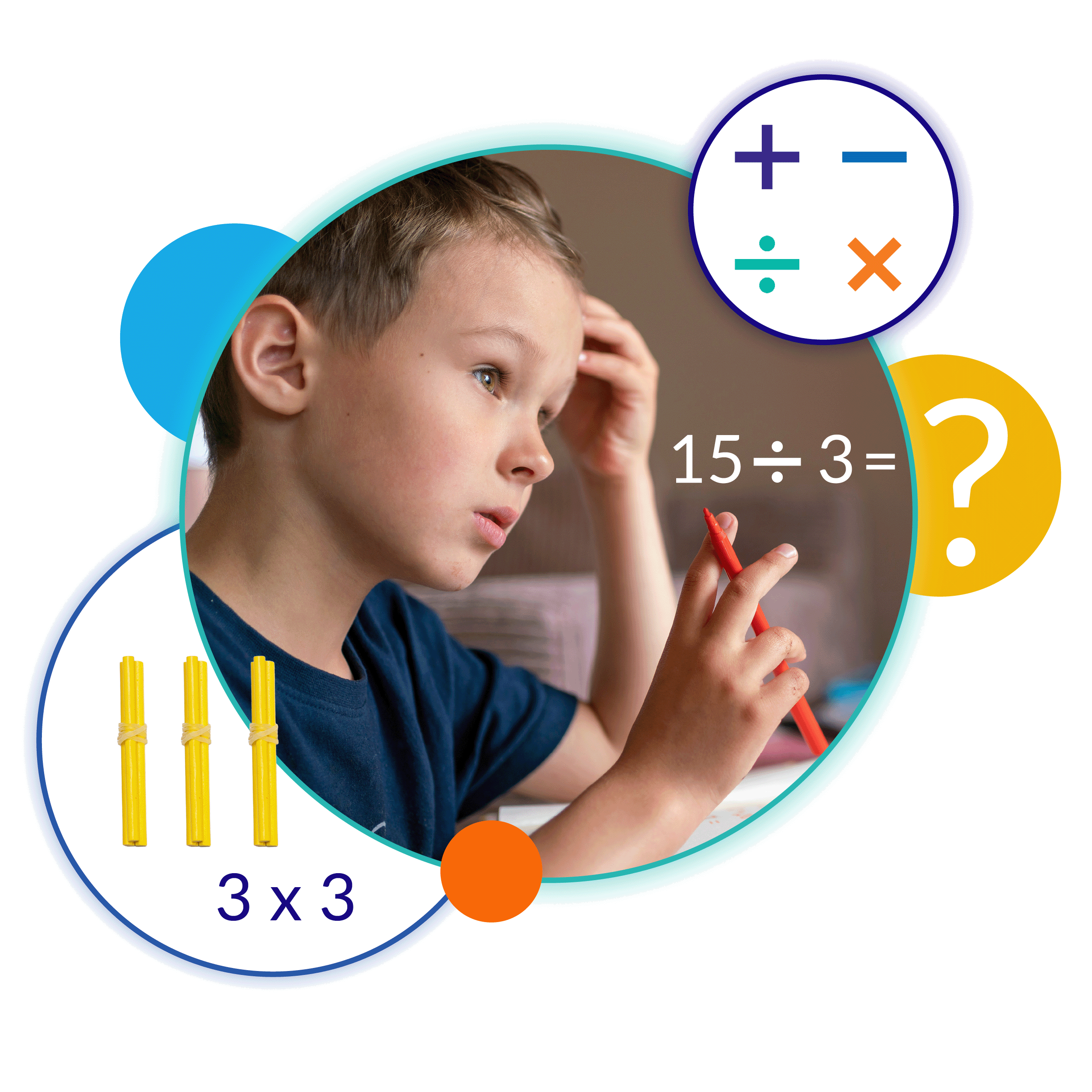
Dyscalculia: The Unaccounted-For Disability
Dyscalculia is a learning disability that affects one’s ability to learn math and may cause difficulty counting. recognizing patterns, telling time, having a sense of direction, and more.
Research shows that people with dyscalculia succeed in math when engaged in multisensory learning methods.
This is similar to how students with dyslexia, a disorder where you may have difficulties identifying how letters and words relate to speech sounds, may benefit from a multisensory approach.
Dyscalculia Statistics: Understanding the Numbers
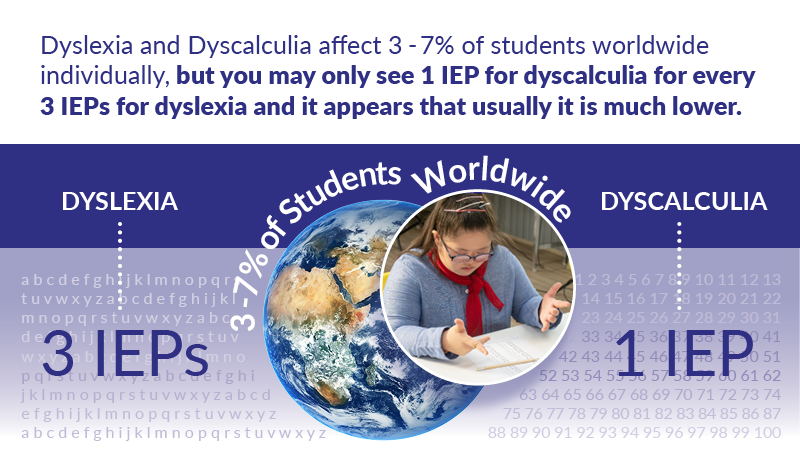
Screen for Dyscalculia as Early as Three
Our dyscalculia screener, DySc, is web-based and can be easily administered by early childhood educators and parents for learners 3-4, 5-7, 8 and up.
Free Dyscalculia Resources
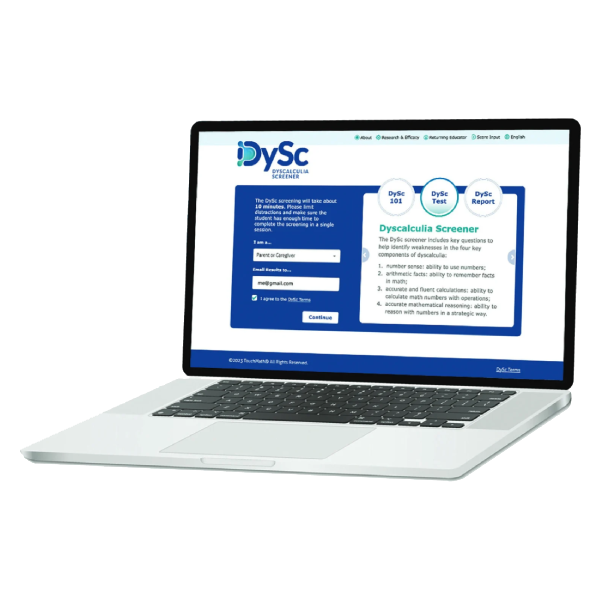
Dyscalculia Screener
Our comprehensive dyscalculia screener, DySc, is aligned to the American Psychiatric Associations DSM-5-TR and available at no cost to help identify weaknesses in four key components of dyscalculia.
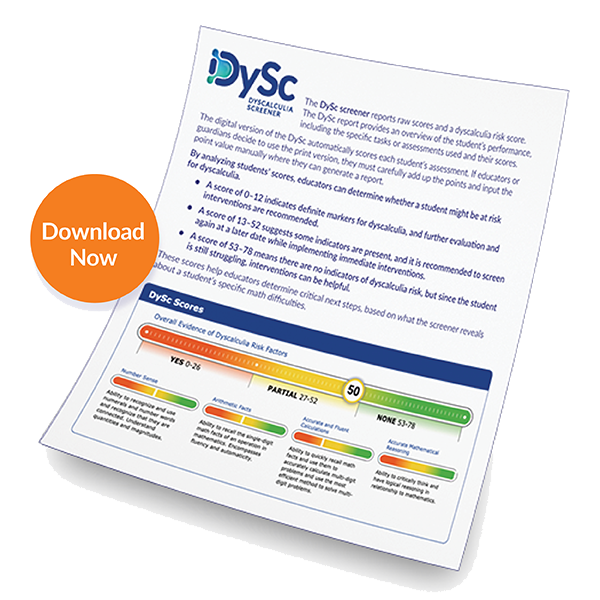
Dyscalculia White Paper
Get everything from what is dyscalculia to evidence-based strategies to support your students in achieving math mastery in our white paper, The Transformative Potential of Early Screening for Dyscalculia, The Discounted Specific Learning Disability.
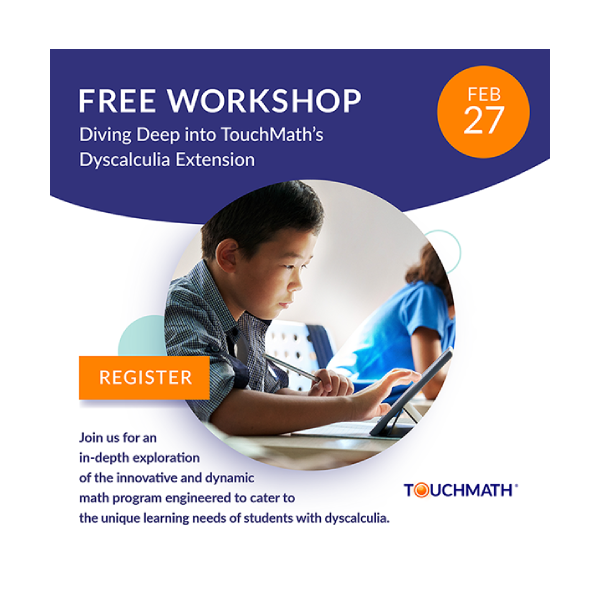
Dyscalculia Workshops
See what growing up undiagnosed with dyscalculia looks like, get lessons, and more with our library of workshop sessions.
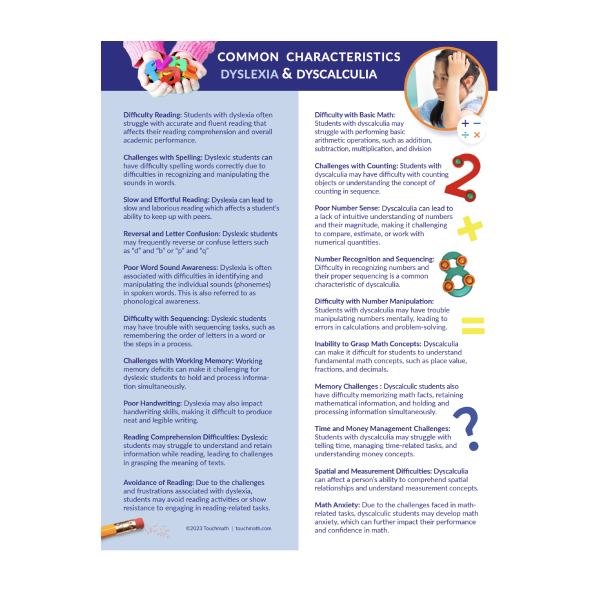
Dyscalculia Knowledge Center
Want more on dyscalculia and TouchMath? Check out our Teacher’s Lounge for blogs, resources, and more!
Want More Resources on Dyscalculia?
We've got you covered! Check out our latest blogs below.
Navigating Dyscalculia: A Close Look at State Laws and How They Impact Education
Navigating Dyscalculia: A Close Look at State Laws and How They Impact Education In educational policy, there is an emerging awareness and understanding of what dyscalculia is, how it can be identified, and how students with dyscalculia can be supported
U.S. Districts See Breakthrough Growth in Math Engagement, Proficiency, and Mastery
U.S. Districts See Breakthrough Growth in Math Engagement, Proficiency, and Mastery In July 2023, a large metro district in the western U.S. started integrating TouchMath district-wide into Special Education classes. The overall growth for completed progress-monitored assignments was 67.2%.
Math is the Backbone of STEM and STEAM
Math is the Backbone of STEM and STEAM According to the U.S. Bureau of Labor Statistics, STEM jobs are predicted to increase by nearly 800,000. Employment projections show a forecasted increase of 798,000 by 2031 and more than half (449,200) are
Funding in Your Backyard: Why Local Funding Should Be Your First Move
Funding In Your Background: Why Local Funding Should Be Your First Move At TouchMath, we believe every student deserves access to tools that make learning math accessible, engaging, and achievable. But we also know that sometimes, the biggest challenge isn’t
Understanding ATSI Funding: What It Is and How Schools Can Access It
Understanding ATSI Funding: What It Is and How Schools Can Access It Across the United States, educators are always looking for ways to better support students, especially those facing significant learning challenges. One important resource available to help address these
How to Meaningfully Include Students in the IEP Process
How to Meaningfully Include Students in the IEP Process The IEP process is designed to support students—but how often do we actually hear from them? During our workshop, Dr. Angel Filer emphasized that including students in their IEP meetings
Download: 10 Common Signs of Dyscalculia
Want the latest and greatest on dyscalculia and math interventions from TouchMath?
Complete the form to get monthly updates, resources, articles, Fun Sheets and more! Once submitted, you will get immediate access to our downloadable, 10 Common Signs of Dyscalculia.



